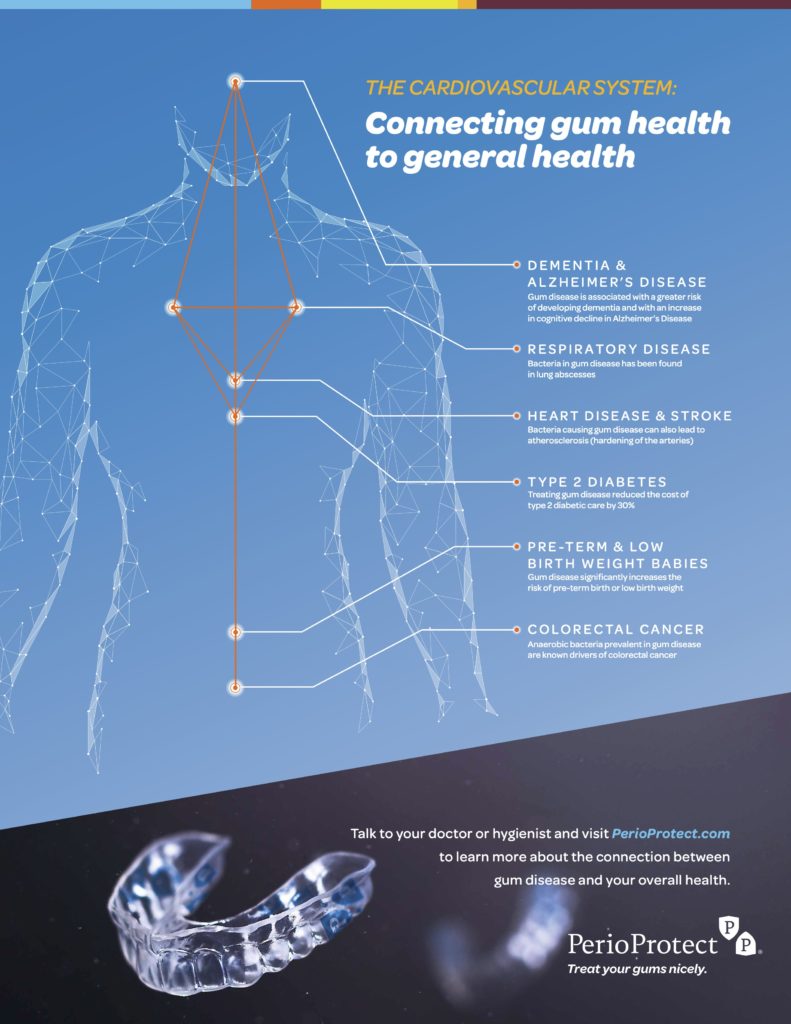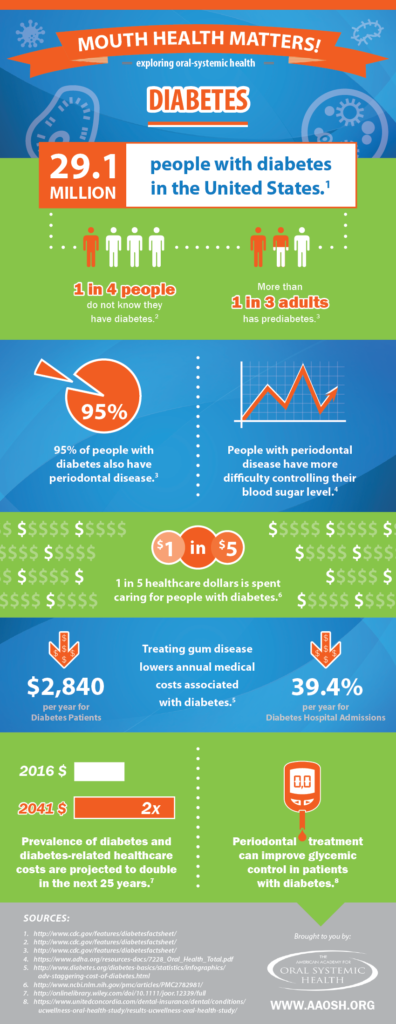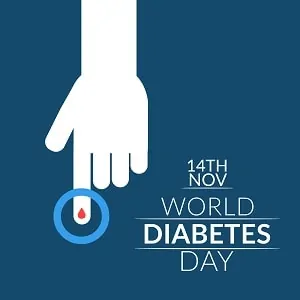Gum Disease
 According to the CDC, nearly 50% of adults over the age of 30 have some form of gum disease, and your dentist in Sparks wants you to know that this is nothing to take lightly. Gum disease is a serious condition that has been connected to an increased risk of developing both oral and overall health problems such as tooth loss, heart disease, and stroke. But there’s even more. A new study conducted by the American Academy for Cancer Research shows a potential link between gum disease and gastrointestinal cancers, including colon cancer.
According to the CDC, nearly 50% of adults over the age of 30 have some form of gum disease, and your dentist in Sparks wants you to know that this is nothing to take lightly. Gum disease is a serious condition that has been connected to an increased risk of developing both oral and overall health problems such as tooth loss, heart disease, and stroke. But there’s even more. A new study conducted by the American Academy for Cancer Research shows a potential link between gum disease and gastrointestinal cancers, including colon cancer.
The Link Between Gum Disease and GI Cancer
The survey from the American Academy for Cancer Research followed over 40,000 men and women for more than a decade, monitoring their health, diets, and results of their colonoscopies. Researchers focused on two types of intestinal lesions that are often precursors to developing colon cancer – serrated polyps and conventional adenomas – as well as patients’ oral health. While it may seem odd to study gut health in relation to oral health, the results were interesting.
- Patients studied were 17% more likely to have a serrated polyp if there was also a history of gum disease.
- Researchers saw an 11% increased risk of having a conventional adenoma if a history of gum disease was also present.
- Participants who lost more than four teeth, a common side effect of gum disease, had a 20% increased risk of having a serrated polyp.
While these survey results certainly seem to point to a correlation between gum disease and colon cancer, researchers say that more studies are needed.
How Can You Tell If You Have Gum Disease?
Gum disease can be treated and cured if it’s detected in its early stages. This is why it’s so important to see your dentist in Sparks twice a year for regular checkups. Early detection is key to treating gum disease effectively before it has a chance to cause bigger oral health or overall health problems. Some tell-tale signs of gum disease may include:
- Bad breath or bad taste that doesn’t go away
- Red or swollen gums
- Tender or bleeding gums
- Painful chewing
- Loose teeth
- Sensitive teeth
- Gum recession
If you experience any of these symptoms, schedule an appointment with your dentist in Sparks as soon as possible to get treatment.
Preventing Gum Disease
There are several ways to protect yourself from developing gum disease, including:
- Brushing your teeth twice a day
- Flossing daily
- Quitting smoking
- Seeing your dentist in Sparks at least every six months
However, it’s important to know that genetics, age, and certain medications can also impact the risk of developing gum disease. Make sure to mention all health conditions and medications to your dentist at every appointment.
Each and every February, loved ones throughout the United States go above and beyond preparing for Valentine’s Day. Whether you choose to show your love with chocolates or flowers, one thing remains constant — bright red hearts are everywhere we look. But there’s another reason (besides Valentine’s Day) that we should pay attention to these hearts. February is American Heart Health Month and focuses on raising awareness of how daily choices affect our risk of heart disease. In fact, this holiday has a special place in your Sparks dentist’s heart because there is a strong connection between oral health and heart health.
What is Gum Disease?
Gum disease is an infection in the gum tissues usually caused by a buildup of bacteria and plaque. When someone doesn’t brush their teeth often enough or well enough, plaque is left behind and can easily work its way up under the gum, settle in, and cause trouble.
There are four stages of gum disease including:
- Gingivitis
- Slight Periodontal Disease
- Moderate Periodontal Disease
- Advanced Periodontal Disease
Gum disease can be treated if caught in the gingivitis stage, so make sure you visit your dentist in Sparks every six months for dental cleanings, x-rays, and thorough exams so we can identify any problems early.
What Does This Have to Do With Your Heart?
If gingivitis isn’t diagnosed and treated quickly it will progress into slight, moderate, or advanced periodontal disease, all of which are irreversible. When gum disease progresses into these advanced stages, the infection can enter the bloodstream and travel throughout the body. This can affect areas outside of the mouth, including the heart.
Heart Disease
Bacteria from gum disease in the bloodstream causes the body to produce too much C-reactive protein (CRP). Higher than normal levels of CRP can lead to serious conditions such as:
- Inflamed arteries
- Blood clots
- Heart attacks
- Strokes
Knowing that your oral health can have such an impact on your overall wellness makes it so incredibly important that you practice good oral hygiene habits at home, including brushing twice a day for two minutes and flossing every day.
Signs of Gum Disease
Since early diagnosis is so crucial to treating gum disease before it has the chance to affect the rest of your body, you need to know the signs of gum disease. Keep an eye out for:
- Bleeding when brushing or flossing
- Puffy, tender gums
- Bad breath
- Loose teeth
If you notice any of the signs of gum disease, call your dentist in Sparks to schedule an appointment. This American Heart Health Month, commit to reducing your chances of heart disease by brushing and flossing every day, seeing your dentist in Sparks twice a year, exercise, and eat a healthy diet. For more ideas on how to live a heart-healthy life, visit the National Heart, Lung, and Blood Institute.

What is Plaque?
When trying to remember the difference between plaque and tartar, it may help to think of the two Ps. Plaque is the primary, or first, thing that can affect your teeth. Plaque is a sticky film that’s basically made up of millions and millions of bacteria. It naturally builds up on teeth throughout each day, and as we eat, the plaque bacteria are also eating. As a byproduct of this feeding, the bacteria release acids. These acids can erode tooth enamel, weaken teeth, and make it easier for cavities to form. However, when we effectively remove plaque through brushing, we can help reduce the number of bacteria and lower the risk of decay and the need for fillings from your Sparks dentist.
What is Tartar?
So what happens when plaque remains on the teeth for too long? That’s where tartar comes into play. When plaque isn’t effectively removed it will harden into tartar. Now, while plaque can be cleaned away through at-home brushing, tartar is a different story. Once plaque hardens into tartar it can’t be removed through regular brushing. Your dentist in Sparks will need to intervene to thoroughly remove tartar buildup. If tartar is not removed, it can increase the risk of cavities, cause tooth discoloration or tooth sensitivity, and can even lead to gum disease.
How to Avoid Plaque and Tartar Buildup
Avoiding plaque buildup and, in turn, tartar isn’t difficult, but it does require good oral hygiene habits. Make sure you’re brushing your teeth each morning and before bed every night for two minutes each time. Additionally, it’s important to remove plaque that may have accumulated in between teeth by flossing once a day. In between brushings, try to drink plenty of water to help neutralize and rinse away acids, and also to remove bacteria. You can also chew sugarless gum after meals and snacks. And as always, try to avoid sugary sweets and drink as it will make for both a happier, healthier smile and a happier dentist.
The truth is, everyone’s teeth will accumulate some plaque and some tartar. The important thing to remember is that this buildup needs to be removed through both brushing and flossing properly at home and seeing your dentist regularly. That’s why we always recommend that our patients visit us every six months for a checkup and thorough cleaning to remove any tartar that may have formed since their last appointment.
If it’s been longer than six months since your last dental appointment, we welcome you to call and schedule a checkup today. We can’t wait to see you!

National Alzheimer’s Disease Month
Alzheimer’s Disease is a form of dementia that affects more than 5 million Americans, and every November we recognize National Alzheimer’s Disease Month in honor of these patients. Until recently, research regarding what causes Alzheimer’s has been limited, which can be frustrating to patients, families, and doctors alike. But thanks to this research, we may be closer to identifying a cause than ever before.
Gum Disease & Bacteria
Our mouths contain hundreds of different types of bacteria. Some of these bacteria are good and others are bad. The bad bacteria are what concern your dentist in Sparks as well as Alzheimer’s researchers. One of these bad bacteria, known as Porphyromonas gingivalis, is at the forefront of the study conducted by the National Institute on Aging. This bacteria, which was found as the leading cause of gum disease in over 6,000 participants, may produce something called plaque of beta-amyloid proteins. Why does this matter? Plaque of beta-amyloid proteins is one of the key indicators of Alzheimer’s Disease.
In yet another study published in the Journal of Alzheimer’s Disease, researchers looked at brain tissue from both patients with Alzheimer’s and patients without. What did they find? Interestingly, the brain tissue from dementia patients contained gum disease bacteria, while brain tissue from non-dementia patients did not.
Even though these studies seem promising and may bring us closer to finding a cause and a cure for Alzheimer’s, we need to note that additional research is still needed.
Protect Your Gums
Whether or not gum disease causes Alzheimer’s or not, it’s still important to protect your gums against disease. Untreated gum disease can lead to tooth loss or bad breath, and the infection can enter the bloodstream and begin to affect other areas of the body, including the heart and perhaps the brain. The best ways to protect your gums include:
- Brushing and flossing every day
- Avoiding tobacco
- Seeing your dentist in Sparks twice a year
Bi-annual visits to your dentist help remove plaque buildup in your mouth that at-home brushing alone can’t touch. This further protects your teeth against cavities and your gums against disease. If it’s been longer than six months since you’ve seen a dentist, schedule an appointment today.
Re-posted with the permission of Perio Protect.

A recent study published in the Postgraduate Medical Journal revealed that certain high-risk bacteria found in gum disease can be a contributing cause of arterial inflammation. And since gum disease affects most Americans over the age of 30—and is both preventable and treatable—the information found in this BaleDoneen study could literally save lives.
You can have your dentist perform a simple, painless exam to see if you have signs of gum disease, and there are several companies that can measure for high-risk oral bacteria. Some include OralDNA, Hain Diagnostic and PerioDX.
There are ways to help treat this high-risk bacteria, including more frequent dental cleanings, usually 4 times each year. At home between dental visits, patients can use prescription Perio Trays® to deliver hydrogen peroxide deep below the gum line. It’s easy, effective, comfortable and convenient..
If you have periodontal disease or are at high risk of gum disease, there are steps you can take to strengthen your oral health, including:
- Brushing and flossing twice a day.
- Stopping smoking.
- Getting a dental cleaning every 3 months.
- Using Perio Trays from Perio Protect.
A professional dental exam, some testing and a few extra minutes taking care of your teeth and gums can make a huge difference. Not only will your mouth thank you, but your heart will as well.
Re-posted with the permission of Perio Protect.

Alzheimer’s disease (AD) is marked by a sticky compound that accumulates in the brain called “beta-amyloid.” Many scientists believe that build-up of this substance interferes with brain function, eventually killing neurons and brain cells permanently.
Researchers are studying the associations between oral bacteria, inflammation and the formation of beta amyloid. They are trying to determine if people with severe gum disease are more likely to develop Alzheimer’s disease. And another study showed that people who already had AD experienced a six fold increase in cognitive decline when they had periodontal disease. The oral bacteria in unhealthy gums causes inflammation that may contribute to arterial and cognitive decline.
This isn’t to say that periodontal disease causes dementia and Alzheimer’s disease, but that health gums contribute to healthy brains. For good mental health, you should also maintain a healthy weight, keep cholesterol, blood sugar and high blood pressure in check, avoid nicotine, stay active, treat depression, eat a healthy diet, and stay socially engaged.
But studies show that your oral health plays a significant role as well. That’s where we can help.
We prescribe Perio Protect to help treat periodontal disease, with results reducing infection and inflammation in as little as three weeks. The easy-to-use, at-home Perio Trays® comfortably deliver hydrogen peroxide deep below the gum line. It’s easy, effective, and can help keep you in better overall health. Both today and down the road.
In addition to regular trips to your dentist to keep your teeth and gums free of disease, you should always consult your primary care physician for matters of overall health and have regular physical exams. Especially if you have a family history of dementia.
Re-posted with the permission of Perio Protect.
There is a strong correlation between gum health and your general wellness. Pathogens that enter the bloodstream are likely to enter through the busiest port in the body—your mouth.

In fact, specific strains of harmful bacteria present in infected periodontal pockets have also been implicated in cases of colorectal cancer, respiratory disease, heart disease and type 2 diabetes. As we move into National #DiabetesMonth, November is a good time to remind ourselves how gum health impacts those with diabetes, and vice versa.
Diabetics need to pay special attention to their gum health. Not only are people with periodontal disease more likely to develop diabetes, but those same people are likely to develop more severe gum disease as a result of their diabetes. This is because heightened blood sugar can restrict the body’s immune system and lead to infection. Conversely, those with periodontal disease have more difficulty managing their blood sugar level.
It’s a downward spiral that can be difficult to remedy.
Diabetes is a serious issue. It affects almost 30 million people in the US alone. And 95% of those people also have periodontal disease.
The better news is: treating gum disease lowers the cost of treating gum disease by nearly 40%. According to the American Academy for Oral Systemic Health, $2,840 per patient, per year.

And while diabetes is top-of-mind during Diabetes Awareness Month, treating gum disease can be a simple, daily habit that requires very little effort on the part of the patient. Our patented, FDA-cleared Perio Trays® deliver hydrogen peroxide Perio Gel®deep below the gum line, into periodontal pockets where toothbrushes and floss simply cannot reach. It’s a safe, easy and effective solution.

Oral Health & Diabetes
Diabetics and their caregivers are well aware of just how much the disease can affect the body, but an often overlooked side effect of diabetes is directly related or oral health. The truth is, diabetes can increase the risk for gum disease, oral infections, poor healing after dental treatment, and dry mouth. If you’re diabetic or have a loved one with diabetes, try these tips to keep oral health in tip-top shape.
Tip #1 – Regular Dental Care is Key
Practicing good dental habits at home is a great way to reduce the risk of diabetic complications related to oral health. Make sure to brush your teeth twice a day, every day, for two minutes. Use a soft-bristled toothbrush and scrub gently to avoid damaging your teeth or gums. Also, brushing your tongue and flossing every day can take your at-home oral hygiene routine one step further and remove even more plaque and bacteria. At our dental office in Sparks, we also recommend maintaining regular visits with our team so we can keep a close eye on oral health. This is especially important if you’re diabetic.
Tip #2 – Eat Smart
Those with diabetes know the importance of eating healthy to control their blood sugar levels, and we can’t stress enough how important a well-balanced diet is for your oral health, too. Minimize your sugar intake to avoid blood sugar spikes and to protect your teeth from its damaging effects. Choose fresh veggies, fruits, and whole grains for a complete diet that’s not only good for your body but also good for your smile. If you’re unsure which foods are best and worst for diabetic patients, talk with your doctor about creating a meal plan.
Tip # 3 – Level Out
Diabetics are accustomed to checking and maintaining their blood glucose levels, and for good reason. Spikes in blood glucose levels can damage essential organs such as the heart and kidneys. But increased blood glucose can also cause problems with your mouth. High blood glucose in diabetics also means a higher chance of loose teeth or even losing teeth altogether. Another oral health concern related to diabetes is gum disease. Gum disease is a serious condition for anyone, but diabetics may have more problems fighting the infection and, in turn, keeping their diabetes under control.
Join our dental office in Sparks in celebrating World Diabetes Day by wearing blue, scheduling a check-up with your doctor if you suspect you may have diabetes, and of course, always brush and floss.
Re-posted with the permission of Perio Protect.
The end of Summer is bittersweet at best. The pool gets covered. Your sandals shuffle their way to the back of the closet. And the smell of sunscreen is slowly replaced by pumpkin spice.
But on the upside, there’s a little less chaos and a little more structure as the kids head back to school with their new haircuts and spiffy sneakers.
Though the shift may seem more dramatic than a screenager’s social media feed, back-to-school also happens to be a great time to evaluate your personal health routine along with the routines of the rest of your family. So once you remind yourself how to set the alarm clock, consider adding more thorough oral care to your morning preparations.
With Perio Protect, you can make a noticeable improvement to your oral health and minimal adjustment to your schedule.
The custom-molded Perio Trays® hold bacteria-fighting medication in the treatment zone long enough to clean deep below the gum line. But the best part is this comprehensive system won’t disrupt your morning. Consider this potential schedule.
7:00 Alarm goes off
7:09 Hit the snooze button again
7:18 Get up, panic a little
7:19 Start the water in the shower
7:20 Squeeze Perio Gel into your trays, pop ‘em into your mouth and step into the shower

7:21 Sing songs, rinse, repeat
7:30 Dry off
7:32 Hair stuff, deodorize, clothe yourself, etc.
7:35 Pop out the trays, brush your teeth
7:45 Grab a bar and hit the door
See? It’s easy. You may not have even noticed how Perio Protect snuck right in there. But give it two weeks, and it’ll be a highly repeatable habit. You’ll experience, whiter teeth and fresher breath while you fend off gum disease-causing bacteria.
Talk to your dentist about how your can augment your routine and improve your overall health while addressing oral health.
Original content posted HERE – Read More about PerioProtect
